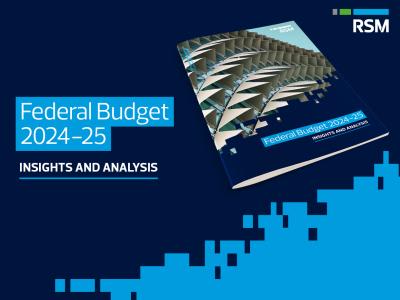Winners and losers
Downstream producers of critical minerals and renewable hydrocarbon who will miss out on $13.7b in tax credits if the Opposition returns to government by 2027.
Foreign investors looking to purchase existing homes in Australia, foreign students wishing to study in Australia and foreigners hoping to migrate to Australia.
AUTHORS

Last Thursday Opposition Leader Peter Dutton delivered his response to Tuesday’s Federal Budget.
In a wide-ranging speech which covered the economy, energy, housing, workforce, health, law and order, online crime, and defence, Dutton also articulated his plan to get Australia “Back on Track” and away from the “dangerous course” on which the country has been set.
Inflation and Cost of Living
Focusing much of his speech on inflation and cost of living pressures, the Opposition Leader described the Budget as the “most irresponsible [he has] seen” and pledged to rein in spending, noting that across three Labor Budgets, the Government has lifted spending by a 'staggering' $315 billion, which equates to $30,000 per Australian household.
The Opposition Leader reluctantly supported the proposed $300 energy rebate, despite criticising the measure for “treating the symptom, not the disease” that is reflected in the “troubling state of [Australia’s] economy”.
Instead, the Opposition Leader outlined a "back-to-basics economic plan" comprising the following points.
Critical Minerals and Clean Energy
In a major point of difference, the Opposition strongly opposes the centrepiece of the Government’s Made in Australia package – the $13.7b in production tax credits for renewable hydrogen and critical minerals production – describing the measure as “corporate welfare for billionaires”. The Opposition Leader stated that “these projects should stand up on their own without the need for taxpayer’s money.”
Taxes
Going further than what the Treasurer announced on Tuesday, the Opposition Leader said that they would extend the value of assets eligible for the instant asset write-off to $30,000 (compared with the Government’s $20,000 limit) and make the measure permanent.
- However, in other respects the Budget Reply was short on details when it came to the Opposition’s view of the Government’s other tax-related proposals. No mention was made of:
- The proposed penalty regime for significant global entities that are found to have ‘mischaracterised or undervalued’ royalty payments.
- The proposed changes to the foreign resident CGT regime.
- Amendments to the general anti-avoidance provisions that apply to lower withholding tax rates and reduced foreign income taxes.
- The extension of the ATO’s ability to hold BAS refunds from 14 days to 30 days.
Whilst stating that taxes would be “lower, simpler and fairer” for all under a Coalition Government, the Opposition Leader did not take the opportunity to expand on this point.
Regulation, Industrial Relations, and Workforce Participation
The Opposition vowed to wind back what it described as regulatory roadblocks and condense approval processes. It also said it would amend the industrial relations regime, for example by reverting to the former government’s definition of a casual worker. Finally, the Opposition Leader said that he would double the existing work bonus from $300 per fortnight to $600 to allow pensioners and veterans who choose to work to do so without reducing their pension payments.
Housing, Immigration and Superannuation
Linking immigration to housing affordability, the opposition vowed to:
- Implement a two-year ban on foreign investors and temporary residents purchasing existing homes in Australia.
- Reduce the permanent migration program from 185,000 to 140,000 (despite saying in 2022 that migration numbers should increase).
- Return the refugee and humanitarian program planning level to 13,750.
- Set a cap on foreign students and increase the student visa application fee.
The Opposition Leader also reiterated his party’s policy of allowing up to $50,000 to be taken from superannuation for the purchase a first home or for separated women to restart their lives. These funds would need to be repaid when the home is sold.
Energy Policy
Blaming what he described as the Government’s “renewables-only energy policy” on increased power bills (and, by extension, the increased cost of other goods and services), the Opposition Leader made the case for nuclear power stating that these would be located on- or near- the brownfield sites of decommissioned or retiring coal-fired power plants to avail of existing infrastructure. He also said that the Opposition would defund the Environmental Defenders Office, unlock gas in key basins and reinstate the National Gas Infrastructure Plan.
Points of Agreement
Despite clear policy differences, there were also points of agreement. The Opposition has endorsed what it describes as “sensible measures’ proposed in the Budget – notably, the $3.4b for medicines on the Pharmaceutical Benefits Scheme, reducing HELP loan indexation to the lower of CPI or Wage Price Index, the extension of emergency payments to support women and children fleeing domestic violence and $50 million for longer consultations for endometriosis and pelvic pain.






